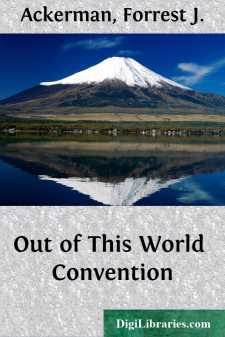Categories
- Antiques & Collectibles 13
- Architecture 36
- Art 48
- Bibles 22
- Biography & Autobiography 813
- Body, Mind & Spirit 142
- Business & Economics 28
- Children's Books 17
- Children's Fiction 14
- Computers 4
- Cooking 94
- Crafts & Hobbies 4
- Drama 346
- Education 46
- Family & Relationships 57
- Fiction 11829
- Games 19
- Gardening 17
- Health & Fitness 34
- History 1377
- House & Home 1
- Humor 147
- Juvenile Fiction 1873
- Juvenile Nonfiction 202
- Language Arts & Disciplines 88
- Law 16
- Literary Collections 686
- Literary Criticism 179
- Mathematics 13
- Medical 41
- Music 40
- Nature 179
- Non-Classifiable 1768
- Performing Arts 7
- Periodicals 1453
- Philosophy 64
- Photography 2
- Poetry 896
- Political Science 203
- Psychology 42
- Reference 154
- Religion 513
- Science 126
- Self-Help 84
- Social Science 81
- Sports & Recreation 34
- Study Aids 3
- Technology & Engineering 59
- Transportation 23
- Travel 463
- True Crime 29
Forrest J. Ackerman
Forrest J. Ackerman (1916–2008) was a pioneering American writer, editor, and literary agent, best known for his role in popularizing science fiction and horror. He created and edited the influential magazine "Famous Monsters of Filmland," which introduced many readers to classic and contemporary genre films. Ackerman is also credited with coining the term "sci-fi" and was an avid collector, amassing one of the largest collections of science fiction memorabilia in the world. His influence extended beyond writing, as he helped launch the careers of numerous sci-fi and fantasy authors, including Ray Bradbury and L. Ron Hubbard.
Author's Books:
Sort by:
I was a spy for the FBI—the Fantasy Bureau of Investigation! Learning of a monster meeting of science fiction "fen" in New York, I teleported myself 3,000 miles from the Pacificoast to check the facts on the monsters. And it was true—the 14th World SciFi Con was tremonstrous. In all seriousness, the Newyorcon was one of the greatest aggregations of s.f. enthusiasts I have ever seen. A far...
more...
The early morning streetcar, swaying and rattling along its tracks, did as much to divert my attention from the book I was reading as the contents of the book itself. I did not like Plato. Comfortable though the seat was, I was as uncomfortable as any collegiate could be whose mind would rather dwell upon tomorrow's football game than the immediate task in hand—the morning session with Professor...
more...



